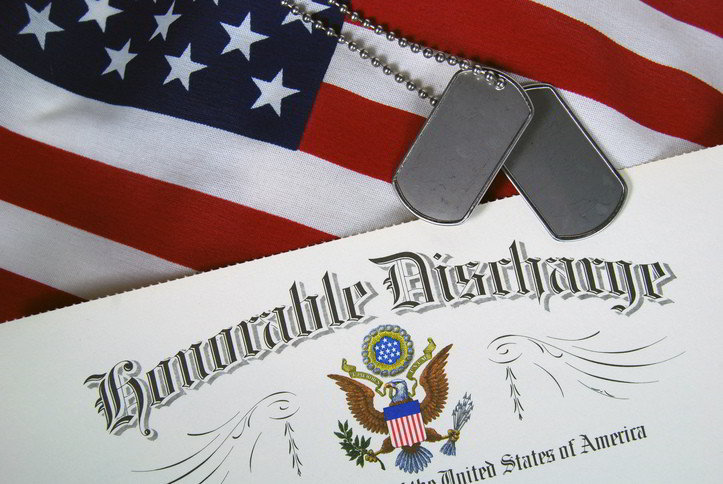Researching Ancestors through Military Records

Nature of War
Wars and armed military conflicts seem to be as old as time. I can picture marauding bands of cave men solving territorial disputes by killing each other with rocks and sticks at the dawn of mankind. This might makes right mentality seems to be a basic component of our human nature and employed as the primary method for solving disputes. This is evident in the historical record of seemingly endless warfare throughout time.
Military Records:
A Goldmine for Genealogists
Fortunately, as genealogists we can use the artifacts of these wars as a tool for learning about our ancestors. Military conflicts generate a tremendous amount of paperwork considering the logistics of signing up, supplying, managing, paying and discharging large numbers of people. A significant amount of valuable information can be extracted from the various types of military records kept.
For the male ancestors in your family tree, it is important to consider if they served in the military conflicts of their time. Always assume that they were involved until you can make certain that they were not through careful research.
The first step is to understand the time periods of the various wars and conflicts to see if your ancestor was of age to participate in that war. You can download a handy War Service Reference Guide from Family Tree Magazine which provides a timeline view of US conflicts plus a birth date chart to help determine which major war your ancestor likely served in.
The next goal is to find the branch of service to which your ancestor belonged and the unit in which he served. Detailed unit histories exist on most units that operated in war time, but it may take quite a bit of digging to find the unit you are looking for. If your ancestor was an officer and graduated from a military academy, there are likely a lot of detailed records kept by the academy.
Locating U.S. Military Records
Below is a selection of some of the largest collections of military records available so you can use your research time most effectively. It is by no means an exhaustive list of resources; there are literally thousands of places across the country where military records are stored. Just keep in mind that locating your ancestors’ military records is part of the challenge and thrill of doing genealogy research. If all military related records were conveniently located in one convenient collection, what would be the fun in that?
Fold3
http://www.fold3.com/
Fold3 is the web's premier collection of original military
documents, with more than 460 million records from the National Archives and
other partner locations. Fold3 is a
subscription site, but may be worth the several dollars a month fee if you have
a lot of military research to do. Also,
you can get free access at Family History Library affiliated Family History
Centers. They have vast collections of
pension files with images and compiled service records.
U.S. Department of Veterans Affairs Nationwide Gravesite
Locator
http://gravelocator.cem.va.gov/index.html
If your ancestor was buried in a veteran’s cemetery, he is
likely to show up on this list. Wives of
veterans can also be found using this resource if they were buried with their
veteran husband. In these cases, graves
are stacked or ashes interred together.
U.S. National Archives
http://www.archives.gov/veterans/
The U.S. National Archives are the primary source for many
military veteran records.
Ancestry.com and FamilySearch.org
These genealogy record repositories have military collections and are a great
place to find draft registration records.
Draft registration records are popular because they cast a wide net that
captures a majority of the male population living at the time of the draft.
Cyndi’s List- Military Category
http://www.cyndislist.com/us/military/
There are many more military records both online and in
libraries, archives and other repositories.
Cyndi’s list is a great place to get an overview of what resources are available online.
The bottom line is that military records are widely dispersed
and will require some significant digging.
Some of the earliest records (pre-Revolutionary War) are located in
state and local archives. Just keep on
searching and following the clues that you uncover along the way.
Read related articles: Record
Sources
Beginner
Guide
Genealogy Quick Start Guide for Beginners
Applying the Genealogy Proof Standard to your Research
Google Genealogy Research Toolbox
Find Records
Researching Ancestors through Military Records
Using the National Archives (NARA) for Genealogy Research
Using U.S. Census Records
Canadian Genealogy Research using the Internet
Tips
Genealogy Source Citations Made Easy
Listening to Genealogy Podcasts Made Easy

